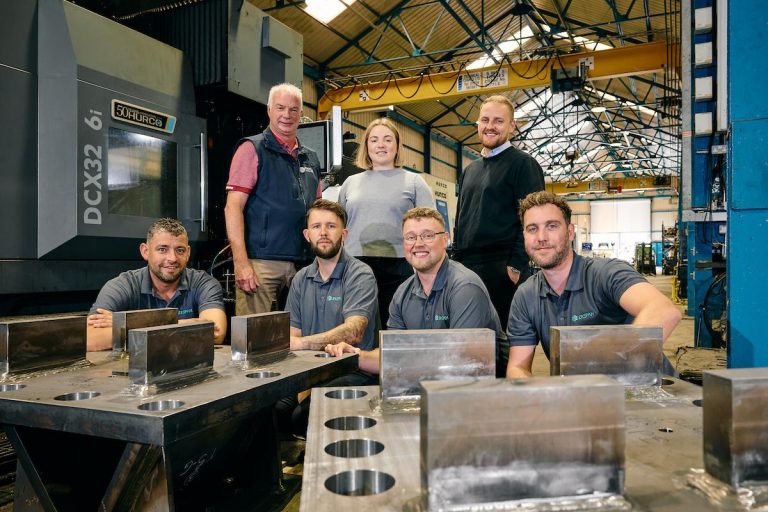LATEST ARTICLES
Software company takes third floor at historic Leeds building
Leeds’ Kennedy Building sold for £1.1m
SIG reports steady performance despite market challenges
SIG Plc has reported a solid performance for the first half of the year, despite ongoing challenges in the construction market. For the six months to June 30, the Sheffield-based supplier saw a modest increase in like-for-like sales, up by 1% year on year to £1.304 billion. Like-for-like volumes also grew by 2%. However, revenues fell by 1%, impacted by working days, exchange rates, and branch closures.
The company posted a 31% increase in underlying operating profit, rising to £15.4 million from £11.7 million. Underlying EBITDA also improved to £54.1 million, up from £51.6 million. Despite this, SIG’s net assets decreased by £31.7 million, standing at £148.1 million at the end of June.
While demand across SIG’s markets remains below historical levels, the company’s UK Interiors and Roofing businesses have performed well, with both segments showing notable improvements. The German and French businesses are also maintaining resilience, albeit in tough market conditions.
The firm is maintaining its 2025 outlook, citing the ongoing implementation of strategic and operational changes. SIG also confirmed that Pim Vervaat will take over as CEO and Chair designate on October 1, following Gavin Slark’s resignation in May. Vervaat will eventually transition to the role of Chair in 18 months.
Town centre transformation continues in Grimsby
Sheffield-based engineering firm accelerates growth with £1.4m debt funding
Sheffield-based bridge engineering specialist EKSPAN has secured £1.4 million in debt financing to support its expansion plans. This marks the largest loan from NPIF II – Mercia Debt Finance, managed as part of The Northern Powerhouse Investment Fund II.
The company, established over 30 years ago, has been an independent entity since 2023 following a management buy-out. EKSPAN provides a full range of services, including structural repairs, diagnostics, refurbishments, and bridge bearing solutions. It operates as a principal contractor, subcontractor, and supplier, with a team of 52 employees.
The firm has played a pivotal role in high-profile UK infrastructure projects, including the glass walkway at London Bridge and the M25 Gade Valley Viaduct. The company’s growth plans focus on expanding its engineering capabilities, with an aim to increase turnover by 50% over the next three years. Additionally, EKSPAN intends to strengthen its position in the market by expanding its in-house manufacturing facilities.
The funding will allow EKSPAN to invest in its Sheffield base and accelerate its development, capitalising on the growing infrastructure opportunities across the UK.
Max Angerer, managing director of EKSPAN, said: “Securing this funding is a significant milestone for EKSPAN and comes at exactly the right time in our journey. Since returning to independent ownership, we’ve been focused on building a dynamic, highly skilled team and investing in our in-house manufacturing to set us apart in the market. “This support from NPIF II will allow us to accelerate our growth plans, expand our capabilities here in Sheffield and strengthen our position as the leading independent bridge engineering specialist in the North. Our goal is to increase turnover and continue delivering some of the UK’s most challenging and innovative bridge projects.” Andy Tyas of Mercia Debt added: “EKSPAN has been renowned for its bridge engineering expertise for over 30 years. Max and the team have built a strong learning culture and created a fresh impetus for growth. As the UK embarks on a fresh era of infrastructure delivery, this funding will help them to take advantage of the opportunities ahead.” Hart Shaw Corporate Finance in Sheffield office provided fundraising advice to EKSPAN.University of Hull partners with insurance company to innovate flood protection solutions for businesses
Extreme weather and the risk of major flooding events are on the rise in the UK. Property level flood resilience (PFR) measures – such as flood doors and smart air bricks – are available to property owners, but adoption remains limited.
RSA Insurance, an Intact company, will partner with the University of Hull’s Energy and Environment Institute (EEI) to measure the effectiveness of PFR in various scenarios, support their adoption, and help individuals, businesses and communities adapt to a changing climate.
Although many properties face flood risk, commercial properties present additional challenges such as accessibility, security doors, and high traffic, which are not addressed by existing PFR products. The research will explore these issues and work to identify flood resilience solutions that meet the needs of business operations.
The partnership will also facilitate the creation of evidence-based tools to help businesses assess and manage their flood risk more effectively.
Professor Fiona Matthews, pro-vice-chancellor for research, said: “Flood resilience is a key strategic area of expertise at the University of Hull. This partnership marks a significant step towards innovative flood risk management solutions that are crucial for addressing contemporary environmental challenges.
“Our collaboration will allow us to translate research findings into practical actions that businesses can take to protect their properties from flooding.”
The work will be led by Stuart McLelland, professor of Water Science and lead researcher for the Total Environment Simulator (TES) experimental facility.
Professor McLelland said: “This is an exciting opportunity to work with RSA to build on our expertise in flood resilience and improve understanding of how property-level measures can be used to reduce flood risk.
“Together we will look at opportunities for product innovation, so that individuals and organisations can take appropriate steps to reduce their flood risk, promoting resilience in the face of more frequent flooding.”
Alison Gardner, head of UK&I social impact and ESG, RSA Insurance, an Intact company, said: “As climate change contributes to more intense and frequent flooding, the need for adaptation has never been more urgent. It’s not enough to respond to extreme weather, we must prepare for it.
“This research plays a vital role in building the evidence base we need to understand what works, where, and for whom. By focusing on commercial properties, which face unique challenges, we can help shape practical tools and solutions that support a more resilient future for businesses and communities alike.”
Yorkshire and Humber sees rise in business start-ups – but insolvency-related activity climbs
URBAN Fresh Burgers & Fries partners with Exultant Group for London expansion
URBAN Fresh Burgers & Fries has entered a strategic partnership with Mizan Syed’s Exultant Group to spearhead its national expansion, starting with Greater London. This move aligns with URBAN’s plans for growth, as it looks to scale its fresh, customisable burger brand beyond its South Yorkshire base.
Syed, an experienced operator with over 20 years in franchising, will open the first London location later this year. He brings with him a portfolio of established brands, including Pret A Manger and Pizza Hut, and a strong reputation for operational expertise. URBAN Fresh Burgers & Fries, known for its focus on high-quality, fresh ingredients and a modern, inviting dining experience, is set to benefit from Syed’s experience in scaling brands in the UK market.
The partnership reflects URBAN’s commitment to sustainable growth through long-term, value-driven collaborations. The brand, which launched in 2017, offers a menu that includes 100% fresh British beef, chicken, and vegetarian options, all made to order, along with hand-cut fries. The company’s flexible franchise model allows for halal-certified locations, expanding its appeal to a diverse audience.
URBAN’s ambition to grow nationally is built on a strong foundation of product quality and customer experience, with plans for further expansion after the success of its first London site.
Immanuel College boosts sixth form capacity with £4m expansion
Immanuel College in Bradford is expanding its sixth form facilities with a £4m project that will increase student capacity by 100, bringing the total to 330 students by September. The expansion is a response to growing demand and oversubscription, with the school among 42 education providers eligible for post-16 Government funding.
Property consultancy Eddisons provided comprehensive support for the project, acting as technical adviser for the Bradford Diocesan Academies Trust, from securing funding to overseeing design, planning, and construction management. The college’s new building will feature six classrooms, a social study area, a common room, and a dining space. Sustainability is a key focus, with solar panels, LED lighting, and enhanced insulation incorporated into the design.
The project also includes improvements to the school’s sports facilities, including a levelled area for a Sports England-compliant football pitch. Additional outdoor accessible space has been created for students.
Construction began after receiving planning approval in 2023, and the new facilities are set to provide a modern, sustainable learning environment for the expanding student cohort.
Yorkshire chamber plans trade mission to Saudi Arabia and Bahrain
The West and North Yorkshire Chamber will lead a trade mission to Saudi Arabia and Bahrain in November, continuing its strategy of fostering international business ties. The mission will take place from November 9-14 and aims to expand trade partnerships in these key Middle Eastern markets.
Building on the success of previous missions to regions such as the USA, UAE, Kenya, Sri Lanka, and Pakistan, the Chamber plans to facilitate high-level networking, economic forums, and industry-specific roundtable discussions. The events will offer businesses in Yorkshire a chance to meet potential partners and explore growth opportunities within these expanding economies.
The itinerary for the mission is still under development by the Chamber’s team, with collaborations planned alongside Leeds Bradford Airport, HSBC, the British Embassies in Saudi Arabia and Bahrain, and the British Chamber of Commerce Bahrain. The mission will be self-funded, emphasising the Chamber’s commitment to driving regional business interests on a global scale.












